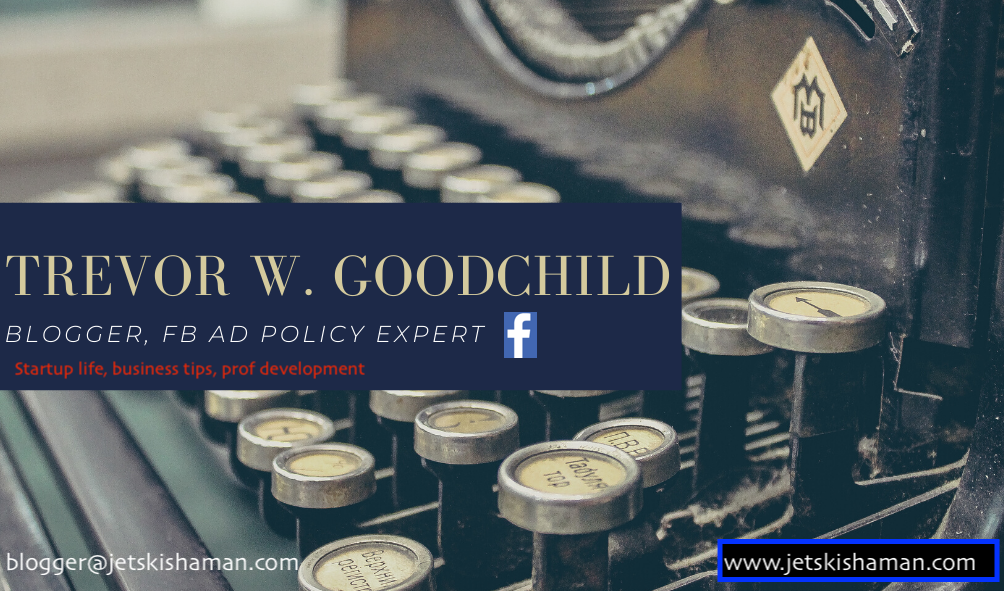
Credit: Morning Brew
In the unprecedented changes we all face right now, it is sometimes unavoidable that workplace stress may rise. If you're keeping up with my blog you're employing top level SEO tips now but still may be getting stressed at work.
The usual suspects are interoffice politics conflicts, changes to how work is done or departmental shifts and of course new changes in technology (we can video chat now but still can't get the computer to load fast).
According to National Center for Biotechnology:
"Stress-inducing management practices included unrealistic demands, lack of support, unfair treatment, low decision latitude, lack of appreciation, effort–reward imbalance, conflicting roles, lack of transparency and poor communication."
While businesses can't control global pandemics, interpersonal conflict can be managed more effectively. Work-related stress is decreased the higher the emotional intelligence is of those most affected.
What is Emotional Intelligence, Exactly?
But before we dive into skill sets, let's get on the same page on what exactly Emotional IQ is.
According to dictionary.com Emotional intelligence is defined as:

Psychology Today defines Emotional Intelligence as:
Emotional intelligence is generally said to include at least three skills: emotional awareness, or the ability to identify and name one’s own emotions; the ability to harness those emotions and apply them to tasks like thinking and problem solving; and the ability to manage emotions, which includes both regulating one’s own emotions when necessary and helping others to do the same.
Why Is Emotional IQ Important In Business?
Whether you're the CEO of a company, a mid-level manager, or an employee, those who are high in emotional intelligence are better able to manage their emotions and the emotions of others around them.
This adds tools which allow them to be more effective managing pressure at work.
Below you'll discover:
5 ways that emotionally intelligent people handle work-related stress better
1. Amygdala Reactions Traded for Neocortex Responses
Ever been told to think before you speak, and thought, "What a novel concept, I'll do that of course!" and find yourself blurting something out later that you didn't intend to?
Emotions run much faster than thoughts and in certain moments like during road rage, we can literally see red when they overwhelm us.
On average, it takes around 6 seconds for our "thinking brain" also known as the frontal neocortex, to receive the same info that our "feeling brain" or amygdala gets first. You can see how this may cause a problem when attempting to respond reasonably right?
What happens often when we overreact is that there is a surge of emotions that is bigger than is really appropriate for the situation that floods our body.
So that moment when someone cuts you off, then goes slower than the speed limit (can you feel yourself reacting even right now?) is triggering the emotional brain to react first, within 10 seconds you can stop the rollercoaster of reactions when you think about how much more your life is worth than getting even with the one who cut you off is worth. That's your neocortex reasoning out cost benefit analysis.

Credit: https://nba.uth.tmc.edu/neuroscience/m/s4/chapter06.html
Here's the key: if we don't react right away, our neocortex's thinking process is activated which helps us make better decisions weighing out multiple outcomes of different actions.
2. They Know When to Take 5 to Gain Perspective
The brain is going to do what the brain is going to do - but emotionally savvy workers and management understand when their stress levels reach a peaking point where self-control starts slipping.
Business leaders and workers that are emotionally intelligent - and actively working on tuning in to this - get a lot more out of emotional energy expended at work. They intuit when breaks are needed to get space between a situation and their reaction to it.
3. They Name Names - in a Good Way
Another feature of emotionally intelligent business owners is that they know sometimes it is best to name the emotions they are feeling. This takes the bite out of the insta-reaction mode.
It can also be humorous to name an overreaction out loud - and humor is a great diffuser of tense situations.
4. High Emotional IQ People Identify Triggers & Respond Calmly
You aren't able to de-escalate a tense situation if you don't know what is creating the tension. One of the huge benefits of having a higher emotional IQ is being able to ID specifically what is triggering tense reactions.
Knowledge is power: once you realize what is setting you off, instead of reacting with anger because you were caught off guard, you can stay calm, positive, use active listening and set boundaries.
5. Emotional Intelligence Lets You Know When to Open Up
There are two extremes you may see in the workplace:
a) A co-worker or employee tells you their entire life story the first time you meet
b) A boss or work colleague never reveals how they are feeling, you walk on tip toes or don't interact at all
Finding a balance between these extremes involves knowing when to open up and become vulnerable to increase work cohesion which also furthers productivity.
Having higher emotional intelligence allows one to be aware of interpersonal relationships and signals when to enforce the company standards uniformly and when to humanize an interaction with empathy and understanding.
Deadlines might not be met, sometimes projects don't go as planned, other moments the wrong person is blamed for results not being ideal because another person wasn't pulling their weight.
Cultivating the capacity to not respond the same way to all external stimuli, like a robot might, but sensing both when showing a little vulnerability yourself is appropriate and when being open to others sharing as well is a function of emotional intelligence.
This ultimately improves teamwork, creates tighter knit workplace communities and reduces stress in interpersonal interactions. Authenticity is more than a buzz word - it makes one more relatable as long as you walk the walk you talk.
How can you use this strategy in your business? What situations have you seen benefit from the features of emotional intelligence described in today's blog?
. . .
Enjoyed this blog?
Signup here to get updates on new startup blogs.
Check out my Medium page here
Is Facebook not explaining why the disapproved an ad?
I worked at FB for years and offer FB Policy Consulting here
Available for freelance writing and guest posting on your blog: [email protected]






Leave a Reply
You must be logged in to post a comment.